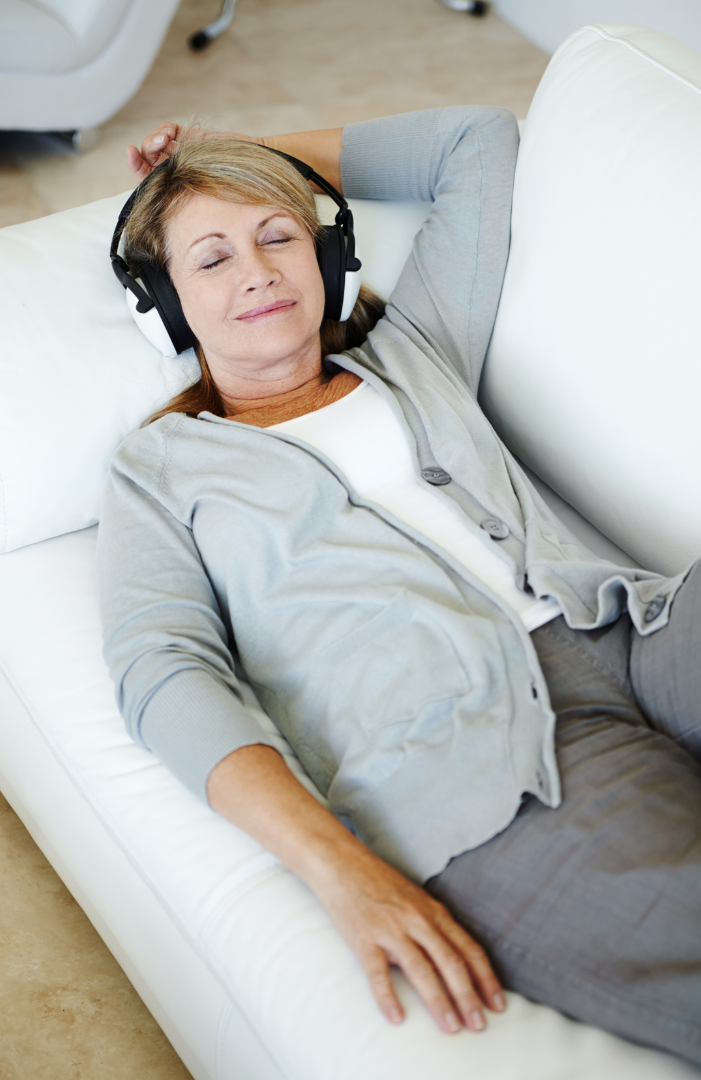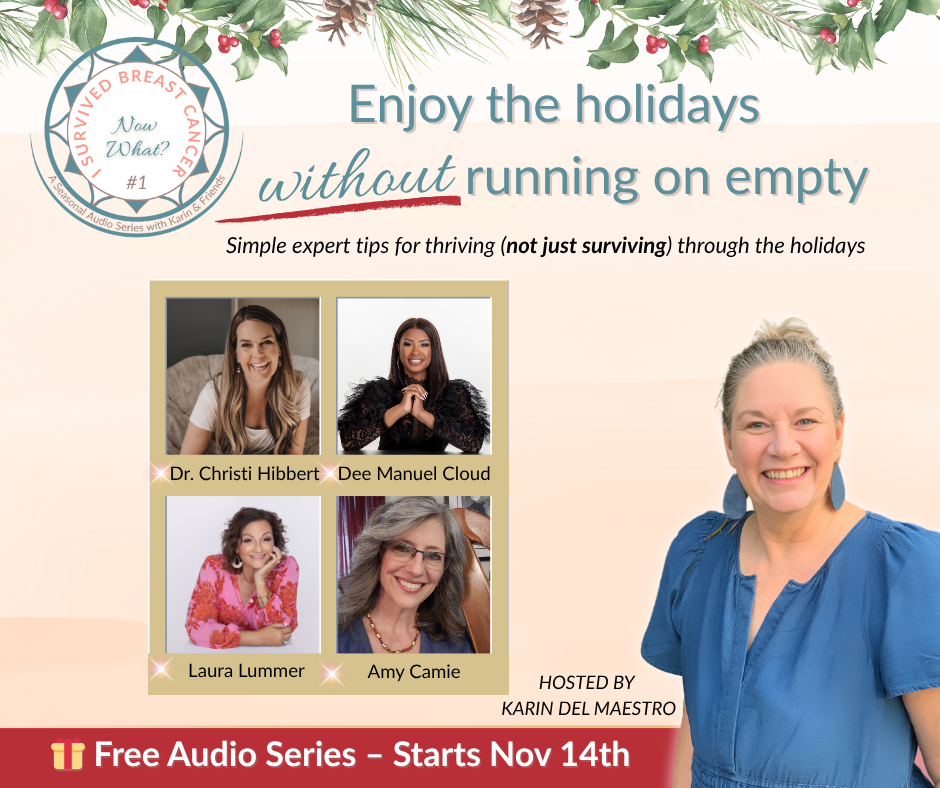625: The Emotional Bruises You Can’t See (But Still Feel)
May 30, 2025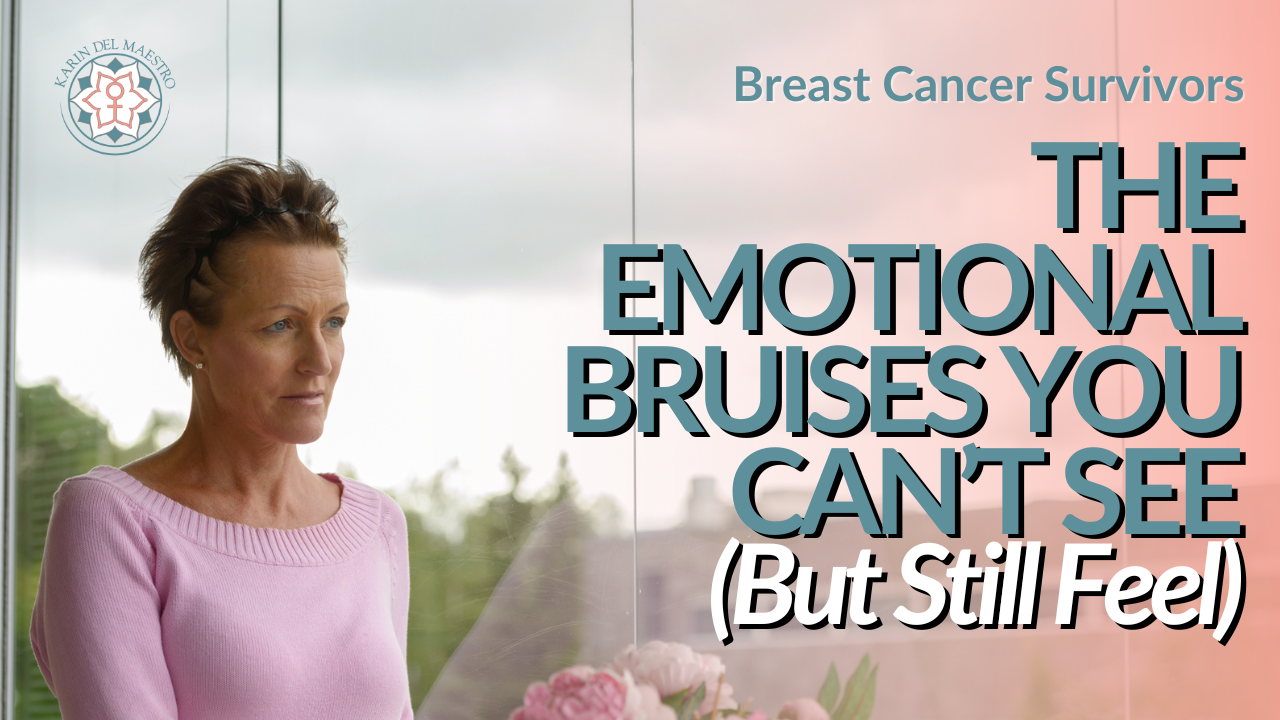
Aka...Why You're Still So Tired After Cancer
👉 Feeling foggy today? There’s a quick summary (TL;DR) at the bottom if that feels easier right now.
I was brushing my teeth one morning, it was just a regular day…and I started to cry.
Not a sob. Just one of those slow, quiet tears that surprises you mid-routine. Toothbrush in one hand, disbelief in the other.
I wasn’t even sure what set it off.
And that’s the hardest part.
Because your chart says “NED.”
Your family says “You’re better now.”
And your to-do list and doctor says “Get back to life.”
But your body? Your body says: “I’m not okay yet.”
If you’ve ever felt this way—bone-deep tired, emotionally raw, and strangely disconnected from your life after treatment—you’re not alone.
And no, you’re not crazy.
You might just be carrying emotional bruises no one ever warned you about.
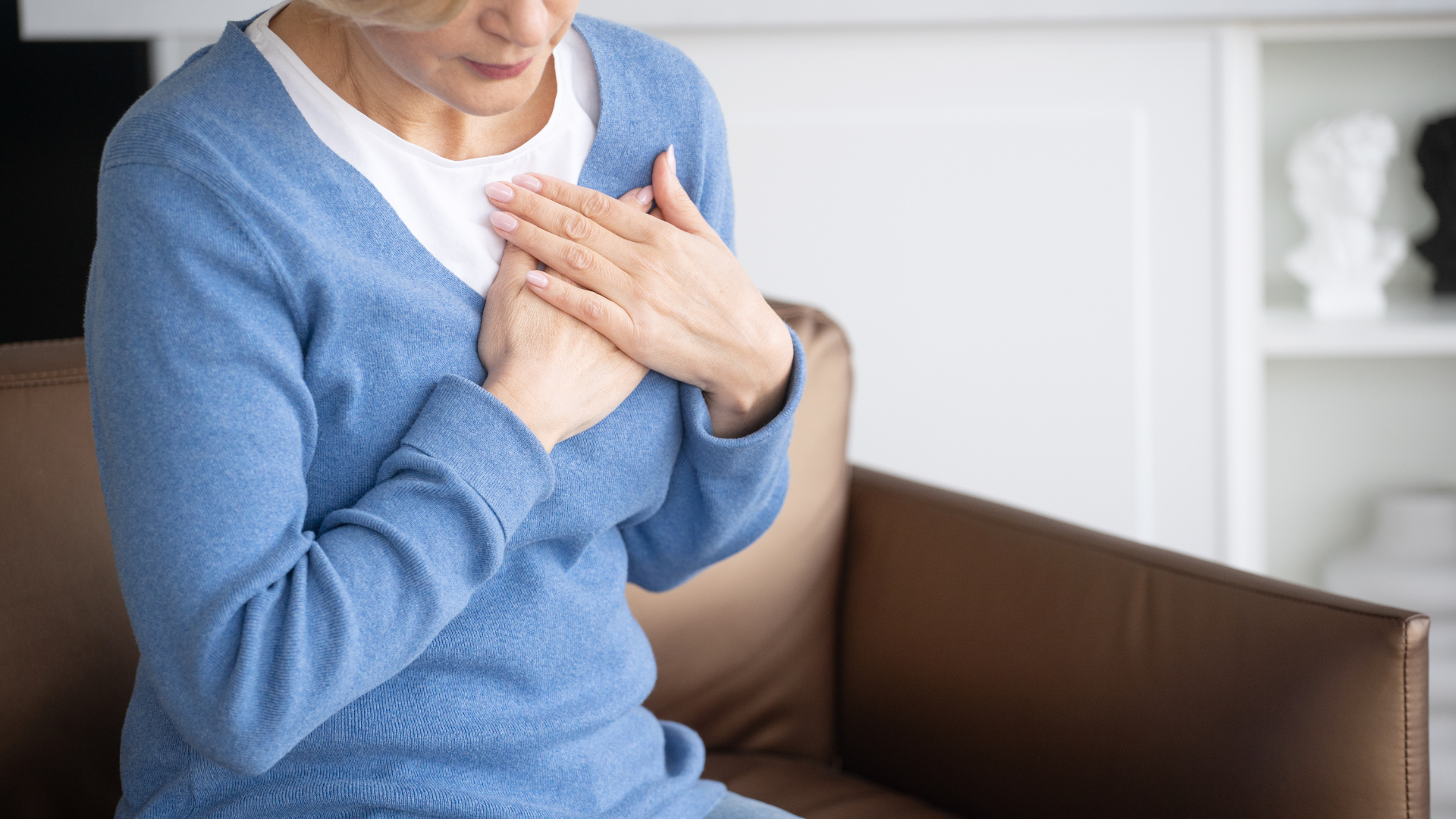
What Are Emotional Bruises?
Just like physical bruises form when we take a hit—we get emotional bruises from the blows life throws our way.
But unlike the kind that show up purple and yellow on your skin, these don’t always leave visible marks.
Instead, they show up as:
- Unexplained fatigue — Not just the "I didn’t sleep well" kind. I’m talking about dragging-yourself-through-the-day, “Why am I exhausted after folding laundry?” kind of tired.
- Sudden waves of sadness — Like when you're unloading the dishwasher (or brushing your teeth!) and tears just appear. No warning. No clear reason. Just a tidal wave of something.
- Resentment you don’t feel “allowed” to express — That sting when someone says, “Let me know if you need anything,” and never follows through. And you swallow it because you feel like you should be grateful just to be alive.
- The feeling that you’re watching your life, not living it — You're going through the motions. Doing what needs to be done. But it feels like you’re behind glass, just... observing, not engaging. Like life’s happening around you instead of with you.
They’re the aftershocks of what you’ve been through.
And they’re real. Even if no one else can see them.
🚨 Where Emotional Bruises Come From (That Nobody Talks About)
The truth is, your bruises didn’t start with your diagnosis.
They might’ve started with years (maybe decades) of:
- Taking care of everyone else first — Like when I was little and learned that being helpful, quiet, and agreeable made things smoother at home. I grew up trying to make sure no one else ever felt disappointed...even if that meant constantly setting myself aside. That pattern followed me well into adulthood. ✔️ Birthday cakes baked. ✔️ Appointments managed. ✔️ Emotions held. Mine? Tucked neatly into a mental drawer labeled “later.”
- Shoving down your needs to keep the peace — That moment when someone hurt you and you said, “It’s fine.” Not because it was, but because I’d learned to “suck it up” because keeping things calm felt safer than rocking the boat. I mastered that one early too—being the “easy one,” the one who didn’t cause problems. I was "the good girl"!
- Smiling through stress, pain, or grief — You become a master of the polite smile. At work. In doctors' offices. At school pick-up. You could be falling apart inside, but on the outside? Always composed. Always capable. Always... fine.
Then came the earthquake of breast cancer.
Followed by surgeries. Treatment. Medications. Recovery. You know the drill…
But just like an earthquake is followed by aftershocks…
You’re now living through the emotional ones:
- Grieving the body you knew — The body that could do things without pain or hesitation. The one that felt familiar. Now, even looking at your reflection feels like staring at a stranger.
- Feeling left behind by friends who vanished — The ones who meant well, who promised to be there, and slowly faded away. And now you don’t know whether to grieve them, be upset or give them grace—or all of the above.
- Not recognizing yourself in the mirror — It's not just about scars or hair or weight. It's the flicker in your eyes, the way your smile feels unfamiliar, like the light behind it got dimmed and you're not sure how to turn it back on.
- Worrying it could all come back — That quiet panic that flares with every twinge, bump or headache. The inner dialogue: "Is this normal? Should I call someone? Am I overreacting?" That fear that makes it hard to plan too far ahead—or trust your body again.
And here's the thing no one tells you:
💥 You don’t need a huge trauma to leave a bruise.
Even small traumas hurt, when repeated or ignored, can leave lasting marks.
Looking back, my bruises started long before I ever heard the words “breast cancer.”
I was the "good girl" growing up in the era where children will be seen and not heard. I was never asked "Karin, what do you want, or how do you feel?"
You might relate...
I learned to navigate life by staying under the radar, keeping everything tucked away inside, but a smile on the outside.
That was until "The Universe" had different ideas...
In 2012, I was rear-ended by a produce truck—five herniated discs, lost my job as a personal trainer, my car, eventually my home. Here I was... a single mum, grieving, scared, holding it all together with grit and green smoothies.
I kept pushing...I figured it out...
Then in 2017 came my mum’s death. My brother’s near-death experience. My husband’s motorcycle accident. All just one year before the diagnosis. Breast Cancer + BRCA2.
And here’s the wild part: after my double mastectomy in 2018, the debilitating back pain I’d had for the previous 6 months… disappeared.
That’s when I realized: my body had been screaming long before the doctors had a name for it.
The grief, stress and trauma had nowhere else to go.
🤨 “Why Am I Still So Tired, Karin?”
It’s the #1 question I hear.
And what I want you to know is:
❌ There’s nothing wrong with you. ❌ You’re not weak. ❌ You’re not failing.
Your nervous system (just like mine) has been in survival mode for so long, it’s like a phone that’s been running on 1% for months, even years—plugged in, but never quite charging.
Wound so tight you could snap at the sound of a fork hitting the floor, yet still forcing yourself to smile and keep going. Always alert. Always scanning. Always prepared for the next hit.
And eventually, your body starts powering down parts of you just to keep going. Joy? Laughter? Motivation? They’re the first to get sacrificed when your system believes it’s not safe to rest.
And if you’re like many of the women I work with, you were already running on fumes before cancer.
Now, the weight of those invisible bruises—the grief, the guilt, the quiet pain of not being understood—can feel heavier than chemo, radiation or any other treatment ever did.
The Silent Bruises That Hurt the Most
Let’s name a few:
💔 The friend who disappeared when you needed her most
🦖 The family member who said, “You should be grateful, not sad”
🤐 The times you smiled and said “I’m fine” when you weren’t
🫣 The moment you looked in the mirror and didn’t recognize your body
😔 The fear of being a burden, so you kept it all in
These are bruises.
They may not be acknowledged in your chart.
But they are very real in your day-to-day.
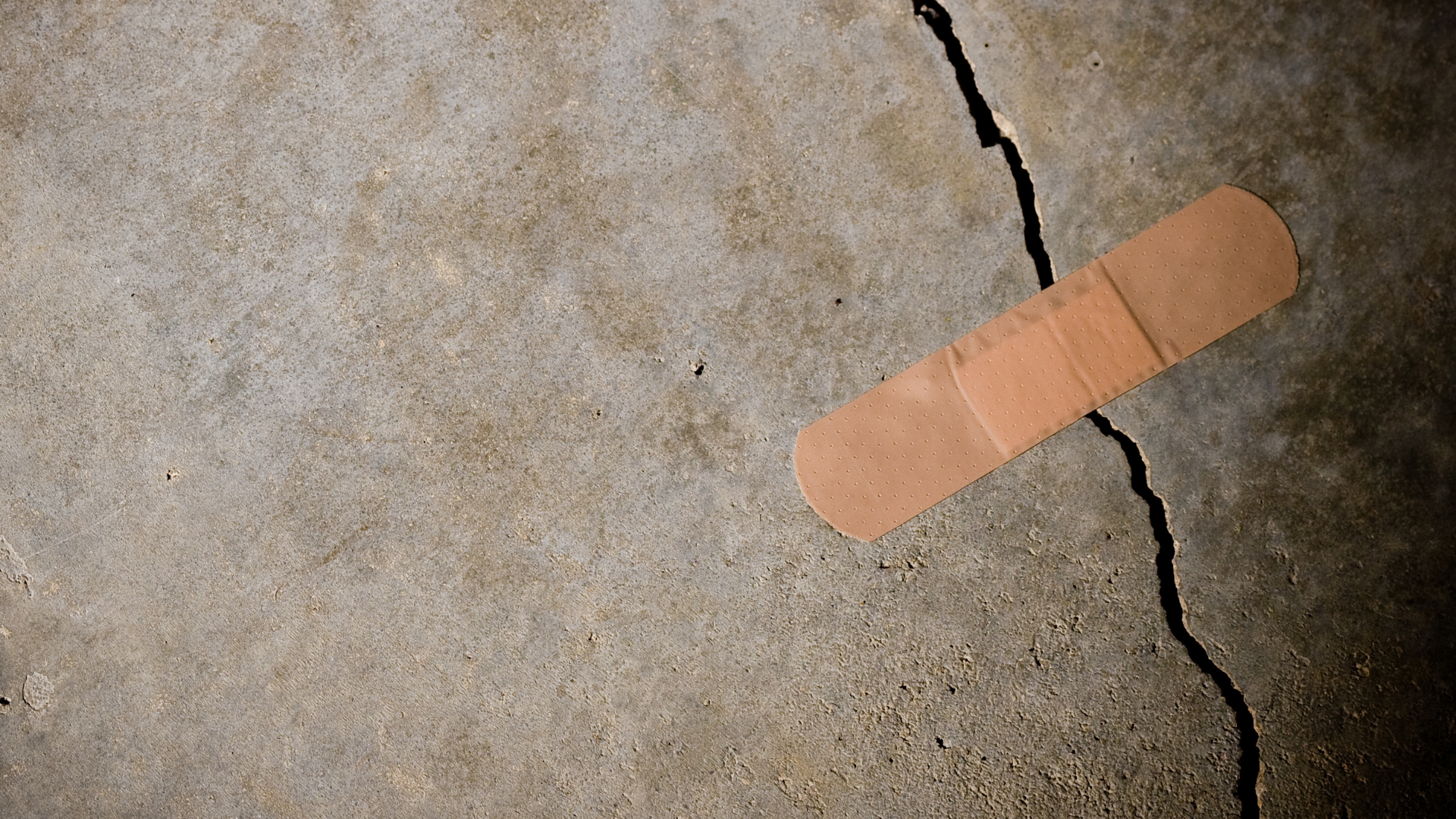
🚩 Why Doesn’t Self-Care Work for Me?
(Spoiler: it’s not you. It’s the bruises.)
Let’s talk about it.
What if you’ve tried all the things:
- That fancy gratitude journal everyone on Instagram swears by
- Adding broccoli to every meal
- Yoga with a side of “please don’t let anyone notice I’m crying in savasana”
- Green smoothies that taste suspiciously like pond water
- Forcing yourself to go for a walk, when you’d much rather Netflix and Chill!
- Guided meditations where your brain just... wanders off into tomorrow’s to-do list
And still—you feel exhausted. Like, deep-in-your-bones tired.
The kind of tired that a nap just isn’t gonna fix.
So what gives?
Well, here’s the truth I wish someone had told me after my treatment:
"You can’t slap a bandaid over an emotional bruise and just expect it to heal."
Because real healing?
It doesn’t happen from the outside in.
It happens from the inside out.
I remember thinking, “I should be okay. I know what to do—I’m a flipping health coach for crying out loud!”
But even after journaling, yoga, broccoli, walking and all the ‘good girl gold stars,’ I was wiped. My motivation was gone. My body felt like it was dragging me backward, not forward.
That’s when I understood—this wasn’t about doing more. It was about going deeper.
And that changed everything.
You can have the prettiest morning routine in the world—but if your nervous system is still on high alert, if you’re still emotionally bruised from all the stuff that no one ever asked you about… your system is going to quietly resist even the most well-intentioned self-care.
That’s not laziness.
That’s not failure.
That’s protection.
Your body’s trying to say:
“Hey love, I’m still sore here. Please be gentle.”
And when we don’t listen, even kindness starts to feel like pressure.
Because the truth is:
- You don’t need a better planner.
- You don’t need a new workout app.
- You don’t even need more discipline (you've got enough of that for 12 people).
What you do need is space to feel safe again.
To feel seen.
To feel like you don’t have to hold it all together anymore.
That’s the kind of self-care that sticks.
That’s the moment when routines start to feel like comfort instead of obligation.
And trust me… once you stop bouncing off your bruises and start tending to them?
That’s when things finally start to shift:
- You wake up without dread hanging over your day.
- You eat healthier because you truly want to nourish your body, not because you think you “should”
- You stop saying “I’m fine” when you’re not—and actually mean it.
- You move your body from a place of love and self-respect…not from pushing and punishment.
- You begin to trust yourself again, one small yes at a time.
You’re Not Broken. You’re Bruised.
And here’s the hopeful part:
💡 Bruises respond best to gentle attention, time, and protection.
You are not too sensitive. You are not being dramatic. You are not “over it” just because the calendar says you should be.
You’re unwinding from a lot.
And that unwinding doesn’t look like pushing through. It doesn’t look like “bouncing back.”
It looks like getting quiet enough to notice the parts of you that are still sore. Still bruised.
It looks like realizing: oh… this isn’t just exhaustion. This is grief. This is fear. This is the cost of carrying it all in silence.
❌ You don’t have to dig into your trauma..
❌ You don’t have to fix everything overnight.
✅ You just need to acknowledge: “Something hurts, and it matters.”
That’s the beginning of rebuilding your energy.
That’s how we stop the cycle of pushing through.
That’s where Thrivership begins and you get to truly live life fully again.
What Unwinding Begins to Look Like
Working through emotional bruises isn’t loud.
It’s not performative.
It’s not about crushing goals or overhauling your life.
It’s gentle.
It’s quiet.
It’s deeply personal.
It’s:
- Saying no without guilt
- Resting without explaining yourself
- Feeling the hard feelings without running from them
- Taking one small step toward yourself each day
One of my clients, Lynn, said it best:
“Before Thrivership School, my joy scale was around 4/10. Now? It's ten thousand million!! I’m smiling for real again. Finding joy in the smallest of places. This was just a blip"

You Don’t Have to Carry This Alone
If any part of this post hits a nerve, you’re not broken—you’re waking up to something important.
You’ve carried so much with a brave face. You’ve shown up, smiled, kept going… even when everything inside you whispered, “This is too much.”
That quiet whisper matters. And it’s time someone actually listened.
That’s why I created Thrivership School.
Not as a program to “fix” you. But as a space to exhale. A place where you don’t have to pretend. Where the weight gets lighter—not because you push through—but because you’re finally supported.
Because I never want another woman to feel like I did—staring at her reflection, smiling for the outside world, but quietly unraveling inside. Not understanding the emotional bruises that had been magnified by a breast cancer diagnosis.
We don’t need another list of what to do.
We need a space where our bruises are seen, our courage is honored, and our journey back to ourselves is guided with softness.
💛 If this hit a nerve…
You’re not overreacting.
You’re not imagining it.
And you’re definitely not meant to carry it alone.
If you’re tired of feeling “on edge,” bracing for the next bad thing, or wondering why you still don’t feel like yourself… there is a gentler way forward.
✨ My “Stop Waiting for the Other Shoe to Drop” guide
gives you tiny, soothing shifts to help your body exhale again...
without adding more to your plate.
👉 Get instant access — $27 👈
(It’s a small, doable step… that often creates a big sigh of relief.)
---------------------------------
🚀 TL;DR: Too Long; Didn't Read
(Here's the summary, I've got you covered!)
If you're still tired, foggy, and wondering why you're not "back to normal" yet... you're not alone. And you're definitely not doing anything wrong.
There’s a reason bubble baths and green smoothies haven’t fixed the fatigue.
It might be emotional bruises—those invisible, quiet hurts that no one warned you about. The ones that come from years of holding it all together, swallowing your needs, and pushing through the pain.
This blog is a soft place to land. It’s for the woman who’s still carrying more than she lets on. It unpacks why you're stuck in survival mode, why self-care hasn't helped (yet), and what moving forward can actually look like—gently, one small shift at a time.
💛 Ready to take the next step? Stop Waiting For the Other Shoe to Drop
Discover what might be pulling on your energy behind the scenes, and how to stop constantly bracing.
You may also like:
💛 The Cancer Personality Profile
💛 What Most Survivorship Plans Miss
🩷 Who am I?
Hey my friend 👋, I’m Karin Del Maestro, Certified Health Coach, breast cancer thriver, and the creator of Thrivership School—a trauma-informed group coaching program helping breast cancer survivors restore energy, rebuild identity, and reconnect with their bodies. Through science-backed rituals and heartfelt practices, I guide women to move from merely surviving to truly thriving, with ease, grace, and plenty of tea.🫖

